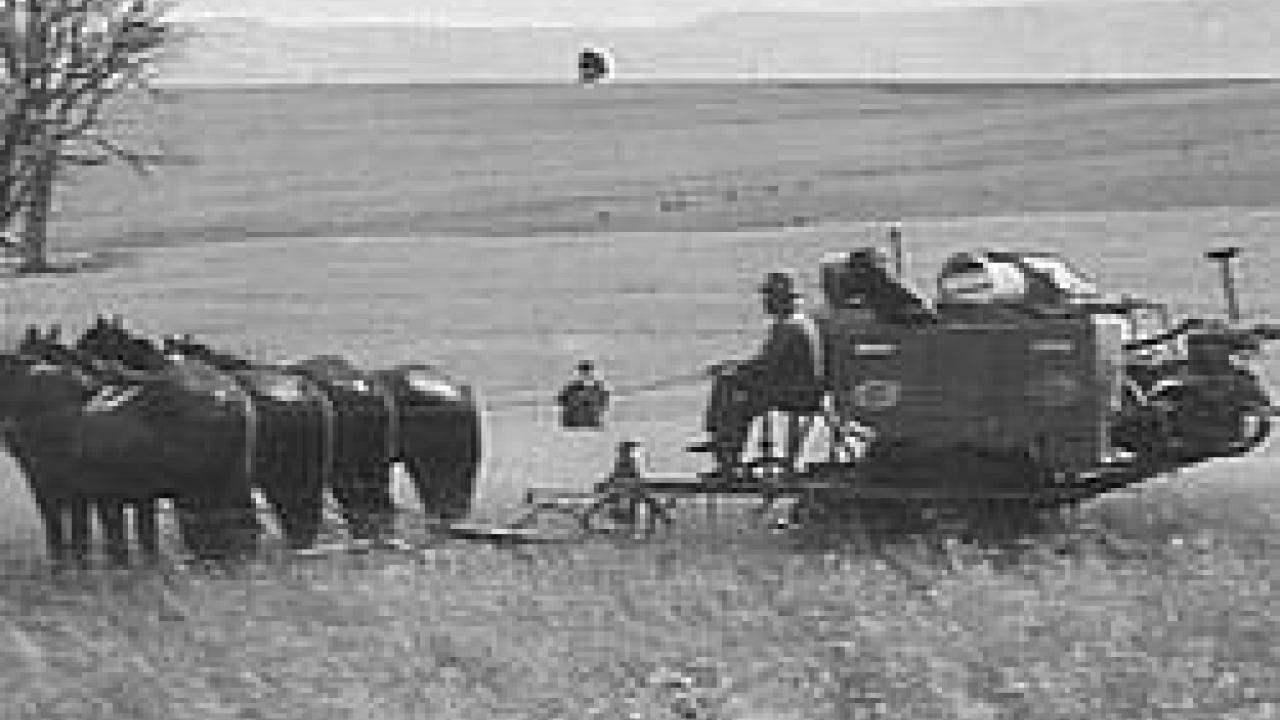The Jim Osborne Memoirs - Soldier settlers get to work

New couples took up the Soldier Settlers farms, and what a difference 12 months made.
Homes were fenced in, gardens formed and planted, and outbuildings appeared.
Most of the work was done by the new tenants themselves.
Garages and workshops were the first needs – and, of course, most importantly were the shearing sheds.
Just at the right time the army decided to sell all the buildings at what had been the army prison camp at Conara.
These dormitory buildings – built to hold 20 prisoners – were ideal.
Two of them put together in an L shape were just right for the job.
This sale of buildings could not have come at a better time as the original Agricultural Bank plan was to have just one central shed to be leased by and used by all the settlers.
With the possibility of sheep ticks, lice, footrot, etc., and with all probably wanting to shear at the one time, what a shemozzle that would have been.
Agricultural Bank planners, planning for the agriculture they knew so little about.
Things were still very primitive though – for quite a long while. Bulldozers were not about by then. Neither were chainsaws. So all clearing was done by axe and crosscut saws.
The biggest tractors could plough perhaps one acre an hour. Modern agricultural technology had not yet begun.
For the wives things were possibly tougher still.
No telephones, no electricity, no domestic appliances and the old wood stove had to be kept going all day – even in summer, not only for cooking but for hot water.
“Mallee” chip heaters were installed in the bathrooms – effective, and appreciated, but another chore.
Obtaining a telephone service was quite a problem. Shortage of supplies was the main cause.
Eventually we on the Macquarie Settlement all combined to cut enough poles for 12 miles of line in the Coburg forest reserve and put them all up.
Then there was a shortage of wire and insulators.
Luckily, we found out that the Railway Department had some second-hand insulators from a line it had pulled up – just enough to do us.
Suitable phone wire was not to be had, so 12-gauge fencing wire did the job.
We were then granted the right to have our exchange – Delmont, with a “party line” of four subscribers.
The exchange was to be in the Delmont kitchen and the wires were rostered so that the exchange operated from 8am to 8pm.
That was the arrangement for five years, when we were eventually connected to the Cressy exchange. But it worked and gave security in case of any emergencies.
Electricity was the next thing.
We had been promised that it would be installed within six months of occupancy, but it was more than 12 months before we could get any further information.
Bureaucrats advised that they would sign for each of us, but could give us no figure. That didn’t seem very satisfactory.
We had a meeting and decided we would prefer to sign our own guarantee so we would know exactly what we were up for.
Sometimes bureaucrats can get very touchy and this bloke did. No reply for about a month and then notification that, as we hadn’t signed within the time required, we had lost our priority and would go to the bottom of the waiting list. And he meant it.
Eventually we were hooked up on April 27, 1955 – more than six years and one month after we had taken possession.
Bureaucratic power can be a terrible weapon in the wrong people’s hands. But I remember it so well.
Jim Osborne died in 2012 but his family only recently discovered his diary. Extracts are reproduced with their permission.




Add new comment